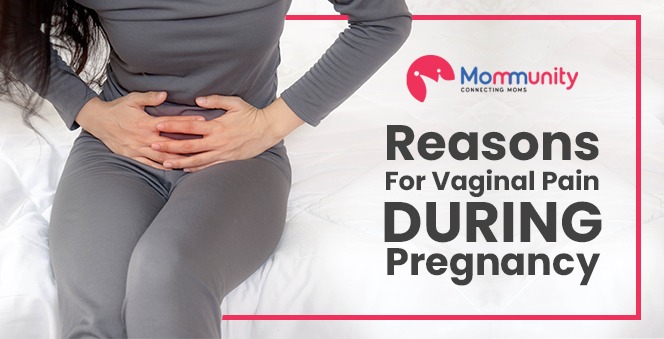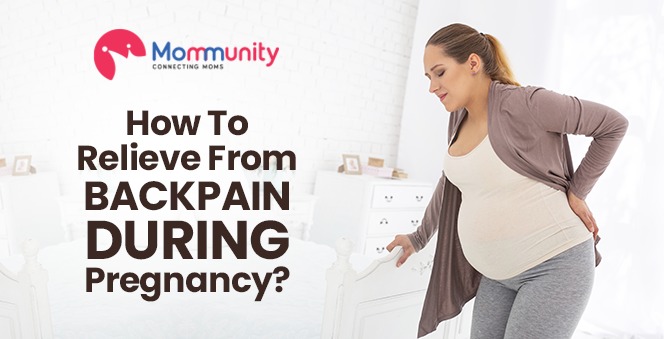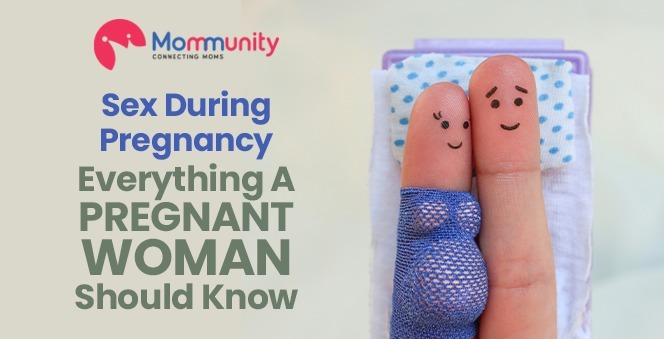A lot of changes take place in a woman’s body as soon as she becomes pregnant. The internal organs shift a little to make space for the growing fetus, and this is accompanied by hormonal fluctuations that manifest as discomfort and changes in the circadian rhythms. Pregnancy does not come without a certain degree of pain.
A pregnant woman usually experiences pain in different parts of her body, including her lower back, abdomen, breasts, and stomach. Some pregnant women may also undergo some pain in the vagina, with the pain either starting in the second trimester or sometimes even lasting throughout pregnancy. In this article, let’s take a look at the causes and treatment for vaginal pain during pregnancy.
TYPES OF VAGINAL PAIN DURING PREGNANCY
The types of vaginal pain experienced by women can be mainly divided into three types:
1. Stabbing Pain: This is a common phenomenon in pregnant women, with prickling pain also coming under this category. This usually occurs from the 5th to 8th week of pregnancy, due to the stretching of uterine muscles. The other reason for this pain could be the flatulence that occurs in the expecting mother’s intestines. If the pain starts around the 37th week, it is usually due to the forthcoming event of childbirth.
2. Nagging Pain: Nagging pain is a widespread problem among women, not just pregnant women. This usually happens because of inflammatory processes taking place in the fallopian tubes or the cervix. If the pain eases up just after treatment, there is no reason to worry; however, if it keeps increasing, you must visit your doctor.
3. Cutting Pain: Minor cutting pain during pregnancy is a common occurrence and is probably the result of the uterus growing in size to accommodate the fetus. However, this could also be a symptom of cystitis in the initial stages of pregnancy. If the pain occurs at a later stage during pregnancy, you should immediately call the ambulance as it could be due to placental detachment. The bottom line being, you should always consult your doctor if you feel that the pain is growing or ominous.
CAUSES OF VAGINAL PAIN
There are many causes of vaginal pain during pregnancy, and they could be trivial or serious depending on the timing and intensity. Here are some of the causes:
1. Enlargement of the uterus: It is one of the most common vaginal pains during pregnancy. The uterus grows in size to accommodate the fetus, and this creates pressure on the vagina and the surrounding muscles.
2. Hormonal changes: Pregnancy is a time of many hormonal changes, and this can cause an uncharacteristic dryness in the vagina. Vaginal pain occurs due to this dryness, especially during sexual intercourse.
3. Growth of the fetus: As the size of the fetus in the uterus increases, the ligaments in the pelvic area also stretch to accommodate this growth. This leads to an overstretching of the ligaments and muscles surrounding the vagina, resulting in a sharp, shooting sensation of pain. The baby’s weight creates pressure on the pelvic floor, causing a dull pain in the vagina.
4. Infection: If the pain you experience is in the external genital area and the vagina, the cause may be an infection in the area. If you suspect that your vagina to be infected, immediately consult a doctor and get diagnosed. Candida is the most common type of infection, which easily affects pregnant women as their immunity is much lower. Reviving from candida infections is also a long process, as cortisone medications are rarely prescribed during pregnancy.
5. Dilation of the cervix: The cervix dilating can result in sharp and shooting pain in the vagina. The dilation occurs at a later stage during pregnancy; a few weeks before labor occurs. This is not a cause for concern. However, you should consult a doctor if the pain is in the lower abdomen or in case it increases.
6. Pelvic Organ Prolapse (POP): POP is a condition during pregnancy where organs in or near the pelvis move down, sometimes into the vagina or the rectum. If the pressure around the vagina is vigorous, it could be a sign of POP. Consult your doctor immediately if you feel intense pressure, or find it hard to control your bowel, or feel something pushing down on your vagina. Though POP is treatable, it might cause complications and intense pain.
TREATING VAGINAL PAIN
Vaginal pain is sure to occur at some stage during pregnancy, so it is beneficial to know how to ease vaginal pain during pregnancy. Pain relief medications can only provide temporary relief therefore, it is better to consult the doctor always.
- Lying down on your left side can boost your blood circulation and soothe vaginal pressure.
- Similarly, sitting down with your feet raised can greatly lessen vaginal pressure during pregnancy, and consequently, vaginal pain.
- Some women relieve cervix pain during pregnancy simply by lying down and keeping the hips elevated.
- Warm baths are a great way to ease vaginal pain.
- Simple exercises like swimming and yoga can relieve vaginal pain by improving circulation in the body as well as strengthening the muscles.
- A pelvic massage can help relieve vaginal pain and offer support to your pelvis, provided it is done after medical advice and with the help of a trained professional.
- Regularly practicing kegel exercises can help relieve vaginal pressure and pain.
- Practicing light exercises for at least 30 minutes every day will not only help regulate the different processes of your body but will also help relieve vaginal pain by strengthening muscles.
- If you have a huge tummy, it might be that the baby’s head is exerting pressure on to the vagina. Wearing a pregnancy support belt will relieve that pressure.
Vaginal pain during pregnancy can be very uncomfortable in spite of it being a common occurrence among women. A few changes in the lifestyle can help relieve vaginal pain, but you should always consult your doctor if you feel that the pain is worse than normal.




